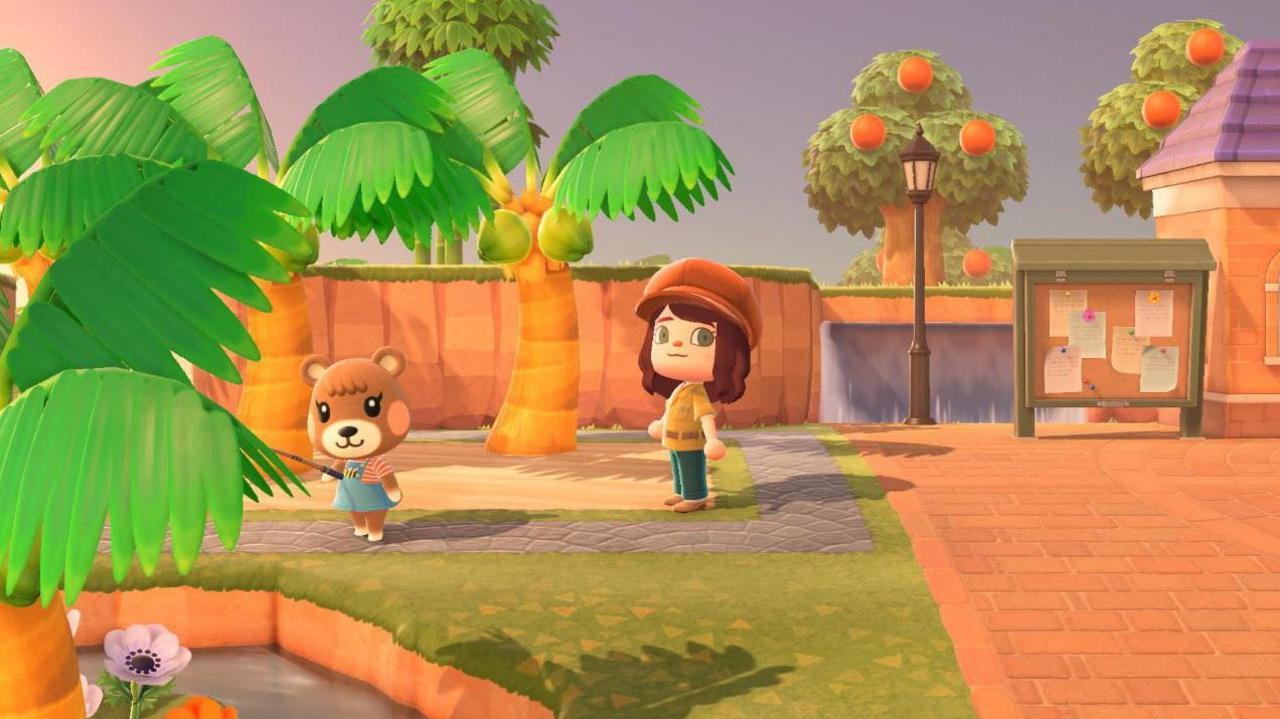Gamers use Animal Crossing and Pokémon for mental health
Cosy gaming helps people to unwind and relax
- Published
When she was growing up, Danii felt she was "a bit odd" and struggled to fit in.
But discovering cosy gaming handed her a lifeline.
Cosy games such as Animal Crossing, Unpacking and Stardew Valley are different to traditional games - often featuring relaxing tasks, cute characters and more creative control for players.
Many gamers are now reporting that it helps with their mental health.
Are cosy games good for you?
According to mental health charity Mind Cymru, external, cosy gaming can provide a coping mechanism for people dealing with mental health issues, and is also a good way of practising mindfulness.
Mum-of-five Danii Wills, 32, from Rhondda Cynon Taf, has anxiety and depression and has recently been diagnosed with Attention Deficit Hyperactivity Disorder (ADHD).
She started gaming when she was young, and later turned to role-playing games such as Pokémon Red and The Sims, both of which are seen by many as cosy games.
Fantasy video game based on Welsh myth to launch
- Published8 August 2024
How gaming helps people with disabilities like me
- Published23 November 2022
Making video game Just Dance accessible for all
- Published10 November 2023
She said she found playing with other people online, and "talking for hours" with them, gave her a sense of community.
"I think honestly it's helped me survive," she said.
"It's helped me through my absolute worst years."
What is cosy gaming?
Cosy games focus on daily routines, community-building or solving mysteries, rather than combat and competition.
They also often involve playing in a relaxed setting, with players using lights and blankets to create a comforting atmosphere.
Gamers share their cosy set-ups and gaming rooms on TikTok and Instagram, with some videos getting millions of views.
During the Coronavirus pandemic, celebrities started posting about the cosy games they were playing, including a new game in the Animal Crossing series, which then surged in popularity.

The game Animal Crossing: New Horizons, shown above, allows players to create their own characters and islands
Animal Crossing is one of the games played by members of Nintendo South Wales, a group that hosts free events every month for Nintendo fans.
They say playing cosy games has given their members a sense of community and, for some, an important lifeline.
Member Ben Ayling, 38, from Cardiff, has schizophrenia and other mental and physical health conditions.
He was previously homeless and struggled with drug addiction and said he uses gaming as an escape.
"I know that after pressing the buttons for a few minutes, I'll have forgotten that I was struggling," he said.

Ben Ayling uses gaming to help him cope with his mental and physical health issues
"If you've got mental health problems, I can't recommend anything else because all you have to do is open your eyes and move your fingers.
"It doesn't take any effort and you get so much back."
Other members of the group said they find they can also talk openly about their mental health while playing online.
Lindsey Lawrence, 37, who has fibromyalgia, said: "When I'm not great with my medical conditions I tend to veer towards Tetris.
"A cosy game to me is just something that makes you feel really warm and happy inside. It's not just about pixels, it goes beyond that."
Most cosy gaming communities are based online.
Graphic designer Zoe Phare, 32, is a member of a Facebook group with 250,000 followers, dedicated to cosy games.

Graphic designer Zoe's favourite cosy games include The Sims and Wylde Flowers
Zoe, who lives in Caerphilly, experienced bullying in school and said becoming attached to characters within games was "really comforting".
Now, when her mind is "too active" and she finds herself "mindlessly scrolling", gaming allows her to focus on something, which puts her mind at rest.
Cosy gaming can be a "coping mechanism" and a form of mindfulness, said Simon Jones, head of policy and campaigns for Mind Cymru.
He said: "Some people may well want to go for a run or be physically active, others will want to read a book or see a friend.
"Gaming obviously plays a role for some people, and that's a valuable part for someone's toolkit."
How much does a cosy game set-up cost?
Cosy games are often cheaper than other video games and many are made by smaller games developers.
They can be played on desktops or laptops, and on consoles like Nintendo Switch and Xbox.
Many gamers use colourful lighting, bluetooth speakers and soundbars or noise-cancelling headphones, and decorate their consoles and spaces with nods to their favourite games.
All of this could set you back anywhere from £200 to £4,000.
But, for some gamers, like busy mum Danii, a cosy set-up can mean something much more simple.
"I grab my blanket, I cuddle up on the sofa, usually my partner will make me a coffee or hot chocolate or get some snacks," she said.
"Once I'm sat down and my headset is on, now I can relax and I don't have to worry about anything for a few hours. It's wonderful."
Elsewhere on BBC News
Why are we so obsessed with pumpkin spice?
- Published29 September 2024
Heartstopper director wishes show existed when he grew up
- Published5 October 2024
Seal snoozes, sunbathes and showers on stolen dinghy
- Published7 August 2024
Get in touch
How have cosy video games helped you? Please get in touch.